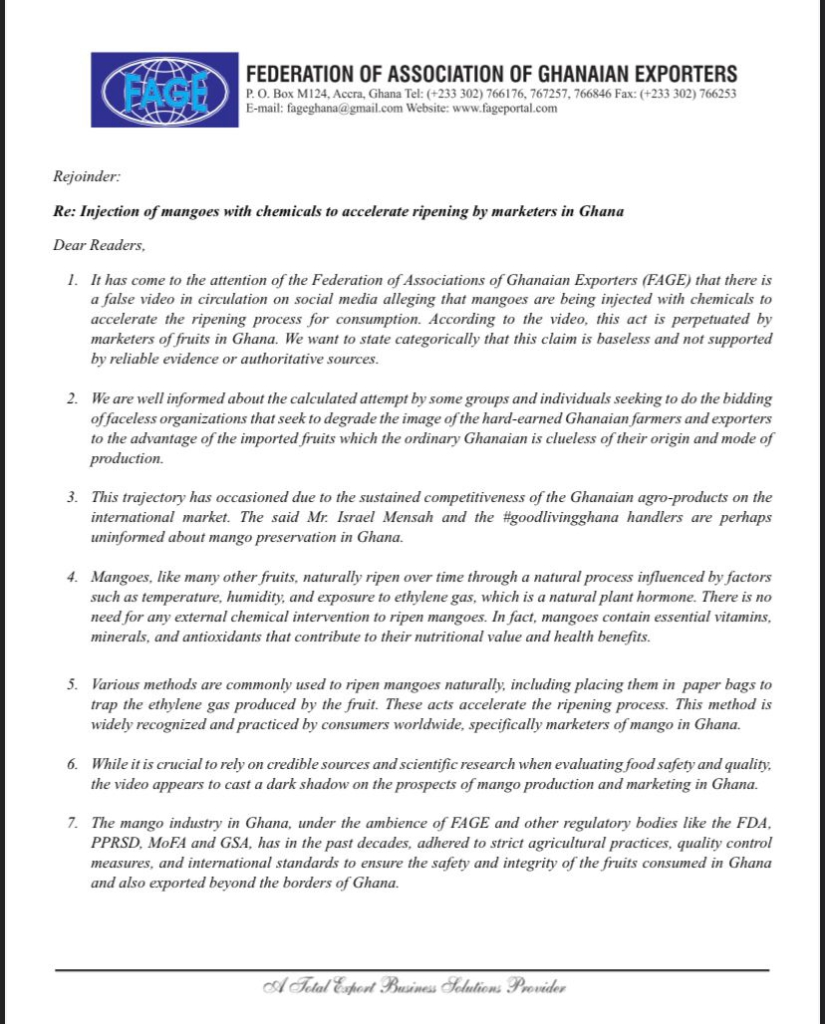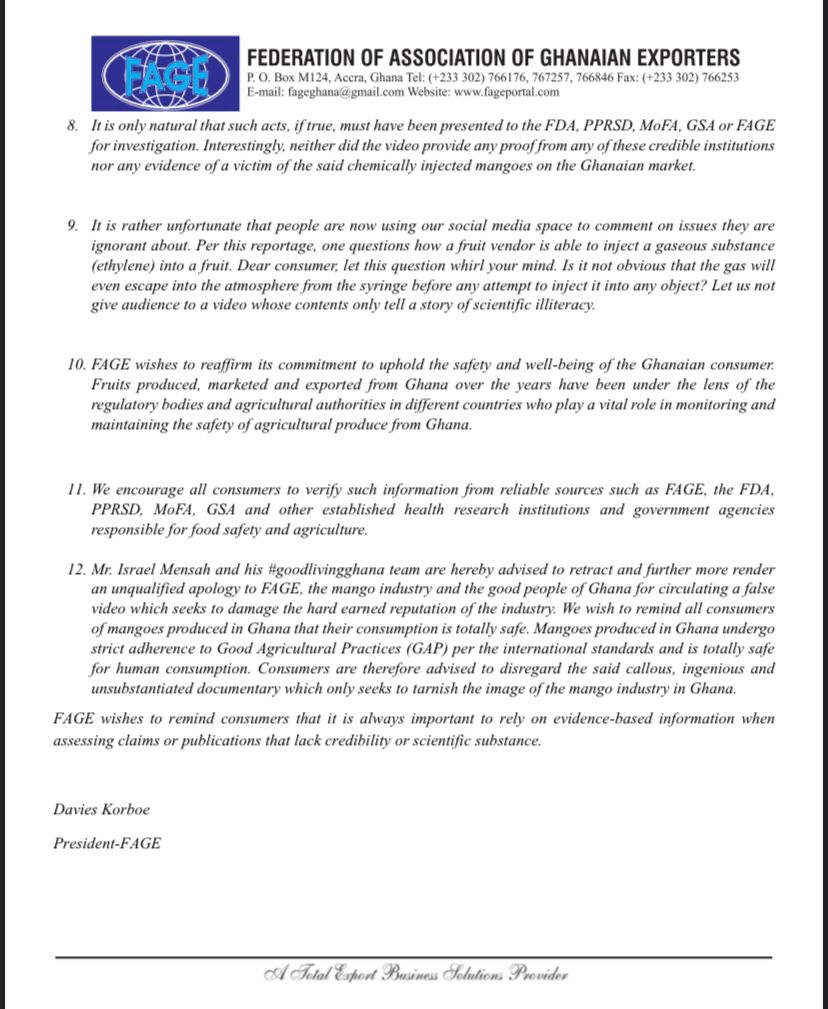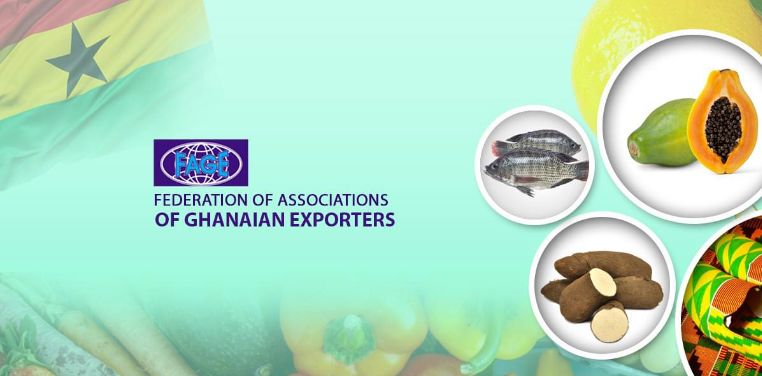The Federation of Associations of Ghanaian Exporters (FAGE), has debunked claims made in a viral social media video that mangoes are being chemically injected to hasten the ripening process.
According to FAGE, mangoes in Ghana adhere strictly to Good Agricultural Practices (GAP) per international standards, and are thus safe for human consumption as they ripen through a natural process influenced by factors such as temperature, humidity, and exposure to ethylene gas.
In a press statement signed by its president, Davies Korboe, the federation described the said video as deceptive, and called on its creators to retract and apologize for the harm caused.
For information regarding the quality of food, FAGE urged the public to rely on organisations such as the Ghana Standards Authority (GSA), the Ministry of Food and Agriculture (MoFA), the Food and Drugs Authority (FDA), and Plant Protection & Regulatory Services (PPRSD).
The Federation in a statement said, "We are well informed about the calculated attempt by some groups and individuals seeking to do the bidding of faceless organizations seeking to taint the image of the hard-earned Ghanaian farmers, marketers and exporters to the advantage of the imported fruits which the ordinary Ghanaian is clueless of their origin and mode of production."
"This trajectory has occasioned due to the sustained competitiveness of the Ghanaian agro-products on the international market. The said Mr. Israel Mensah and the #goodlivingghana handlers are perhaps uninformed about mango preservation in Ghana.
Mangoes, like many other fruits, naturally ripen over time through a natural process influenced by factors such as temperature, humidity, and exposure to ethylene gas, which is a natural plant hormone. There is no need for any external chemical intervention to ripen mangoes. In fact, mangoes contain essential vitamins, minerals, and antioxidants that contribute to their nutritional value and health benefits.
It said the mango industry in Ghana, "under the ambience of FAGE and other regulatory bodies like the FDA, PPRSD, MoFA and GSA, has in the past decades, adhered to strict agricultural practices, quality control measures, and international standards to ensure the safety and integrity of the fruits consumed in Ghana and also exported beyond the borders of Ghana.
Read the full statement below:


Latest Stories
-
Where hope fails: Ghana’s decaying home for the destitute
2 mins -
NDC Mining Committee for 2024 campaign refutes allegations of recruiting thugs for elections
12 mins -
Traction Control: A lifesaver with an off switch? Here’s why it exists
15 mins -
I don’t need anyman to woo me with money – Miss Malaika 2024 winner refutes pimping claims
22 mins -
”Kurt Okraku sabotaged my national team career because I refused to sign with Dreams FC” – Najeeb Yakubu
23 mins -
Businesses urged to leverage Generative AI for enhanced customer engagement
27 mins -
MultiChoice Ghana partners with Ghana Hotels Association to elevate guest entertainment
35 mins -
Bawumia’s music streaming app or Mahama’s pay-per-view TV channel?
40 mins -
Karpowership Ghana empowers 40 Takoradi Technical University students with scholarship
42 mins -
We expect significant reduction in prices of petroleum products in coming weeks – CEO AOMC
56 mins -
Betway Africa offers once-in-a-lifetime ‘Play-on-the-Pitch’ experience at Emirates Stadium
1 hour -
I coined the term ‘hype man’ in Ghana – Merqury Quaye
1 hour -
Vasseur questions ‘strange momentum’ of Formula One race director change
2 hours -
“I am disappointed in Kojo Manuel” – Merqury Quaye on “no tie” comment
2 hours -
Nana Kwame Bediako; The beacon of unity
2 hours

